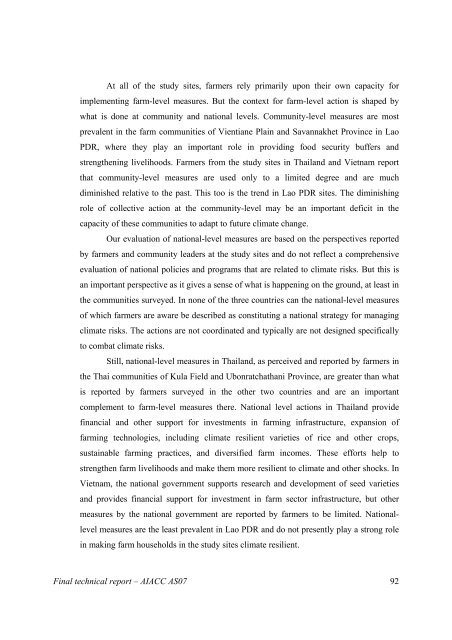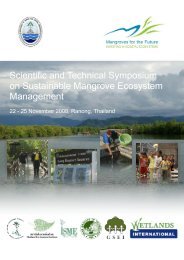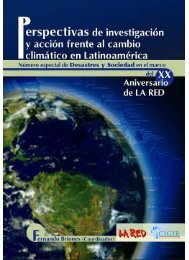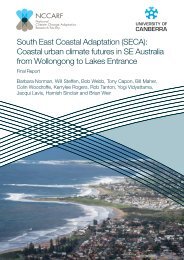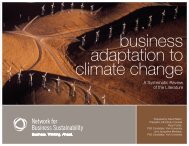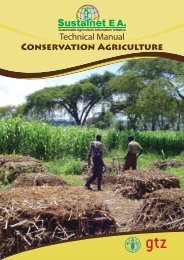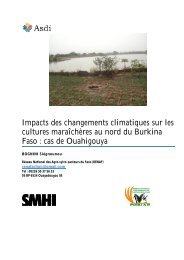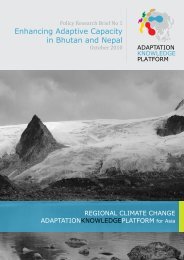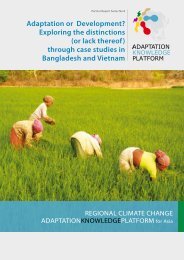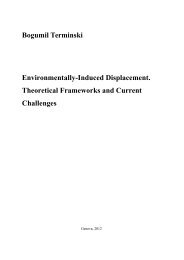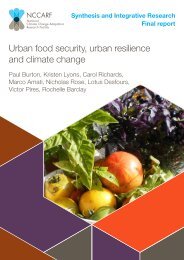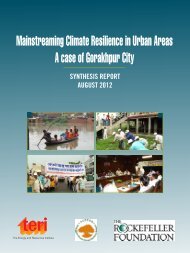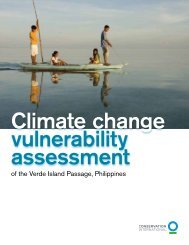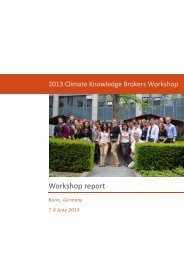Final Technical Report - weADAPT
Final Technical Report - weADAPT
Final Technical Report - weADAPT
- No tags were found...
You also want an ePaper? Increase the reach of your titles
YUMPU automatically turns print PDFs into web optimized ePapers that Google loves.
At all of the study sites, farmers rely primarily upon their own capacity for<br />
implementing farm-level measures. But the context for farm-level action is shaped by<br />
what is done at community and national levels. Community-level measures are most<br />
prevalent in the farm communities of Vientiane Plain and Savannakhet Province in Lao<br />
PDR, where they play an important role in providing food security buffers and<br />
strengthening livelihoods. Farmers from the study sites in Thailand and Vietnam report<br />
that community-level measures are used only to a limited degree and are much<br />
diminished relative to the past. This too is the trend in Lao PDR sites. The diminishing<br />
role of collective action at the community-level may be an important deficit in the<br />
capacity of these communities to adapt to future climate change.<br />
Our evaluation of national-level measures are based on the perspectives reported<br />
by farmers and community leaders at the study sites and do not reflect a comprehensive<br />
evaluation of national policies and programs that are related to climate risks. But this is<br />
an important perspective as it gives a sense of what is happening on the ground, at least in<br />
the communities surveyed. In none of the three countries can the national-level measures<br />
of which farmers are aware be described as constituting a national strategy for managing<br />
climate risks. The actions are not coordinated and typically are not designed specifically<br />
to combat climate risks.<br />
Still, national-level measures in Thailand, as perceived and reported by farmers in<br />
the Thai communities of Kula Field and Ubonratchathani Province, are greater than what<br />
is reported by farmers surveyed in the other two countries and are an important<br />
complement to farm-level measures there. National level actions in Thailand provide<br />
financial and other support for investments in farming infrastructure, expansion of<br />
farming technologies, including climate resilient varieties of rice and other crops,<br />
sustainable farming practices, and diversified farm incomes. These efforts help to<br />
strengthen farm livelihoods and make them more resilient to climate and other shocks. In<br />
Vietnam, the national government supports research and development of seed varieties<br />
and provides financial support for investment in farm sector infrastructure, but other<br />
measures by the national government are reported by farmers to be limited. Nationallevel<br />
measures are the least prevalent in Lao PDR and do not presently play a strong role<br />
in making farm households in the study sites climate resilient.<br />
<strong>Final</strong> technical report – AIACC AS07 92


